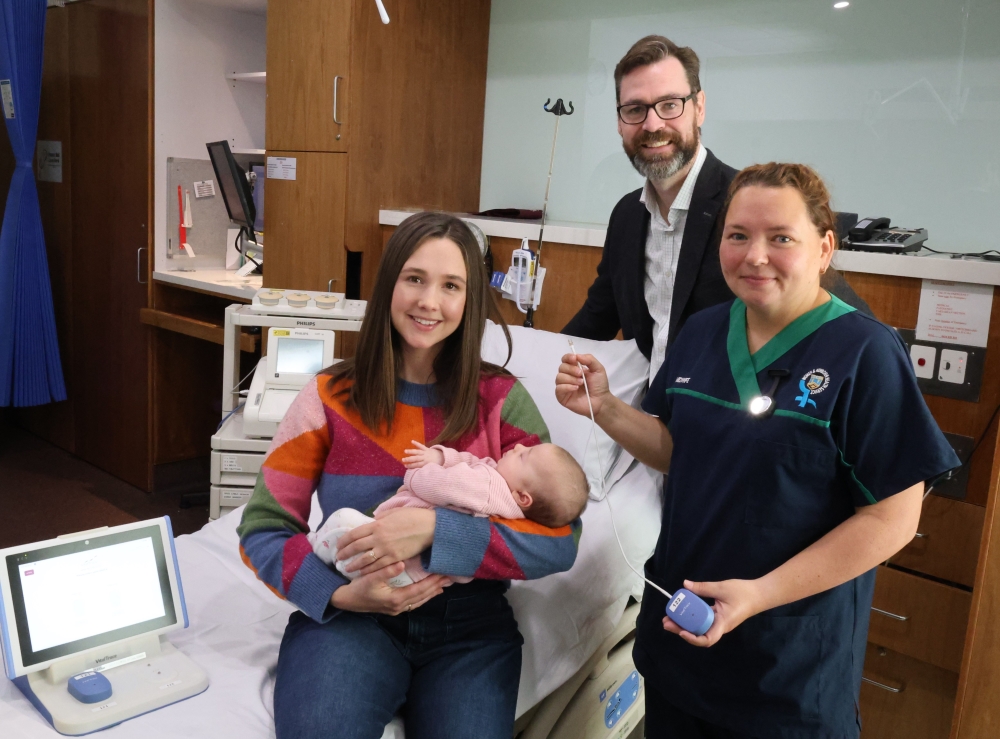Revolutionary fetal monitoring device being trialled at King Edward Memorial Hospital

A revolutionary device developed here in Western Australia and being trialled at King Edward Memorial hospital has been described as the biggest development in fetal monitoring in 50 years.
Doctors at the state’s leading maternity hospital are excited about its potential to prevent major health issues, such as birth asphyxia and cerebral palsy.
Developed by WA medtech company VitalTrace along with UWA researchers, it has been tested at King Edward Memorial Hospital and two other Australian public hospitals as part of the device's development pathway.
UWA Associate Professor Scott White, a Maternal Fetal Medicine Service Consultant at King Edward Memorial Hospital, has been working with inventors for seven years to get to the groundbreaking wireless device to the trial stage.
"The new device measures lactate, the natural substance produced by cells when they use glucose for energy production when the body lacks oxygen," Assoc Prof White said.
"It's a really novel way of assessing a baby's wellbeing in labour compared to the traditional technique, which looks at monitoring different changes in baby's heart rate patterns.
“Ultimately this is about making childbirth safer, both for mothers and for babies. So, giving us a better technique to pick up the babies who are compromised, but also limiting our interventions to the mums who really need it."
The mobile device has a small electrode sensor that is applied by an obstetrician or midwife to the baby's scalp once the mother's waters have broken and the baby's head is accessible.
It transmits real time information from the sensor to a monitor using wireless technology, which means the mother can move around freely during labour while healthcare professionals monitor the wellbeing of her baby.
“It is estimated that the device may reduce the emergency caesarean section rate by as much as half, which should be really very powerful in protecting those occasional babies who are compromised,” Dr White said.
The next step in the development pathway of the device is an international clinical trial involving maternity hospitals globally.

